14 Effective Home Remedies For Treating Keratosis Pilaris
Combat the rough patches and bumps by applying natural ingredients at home.
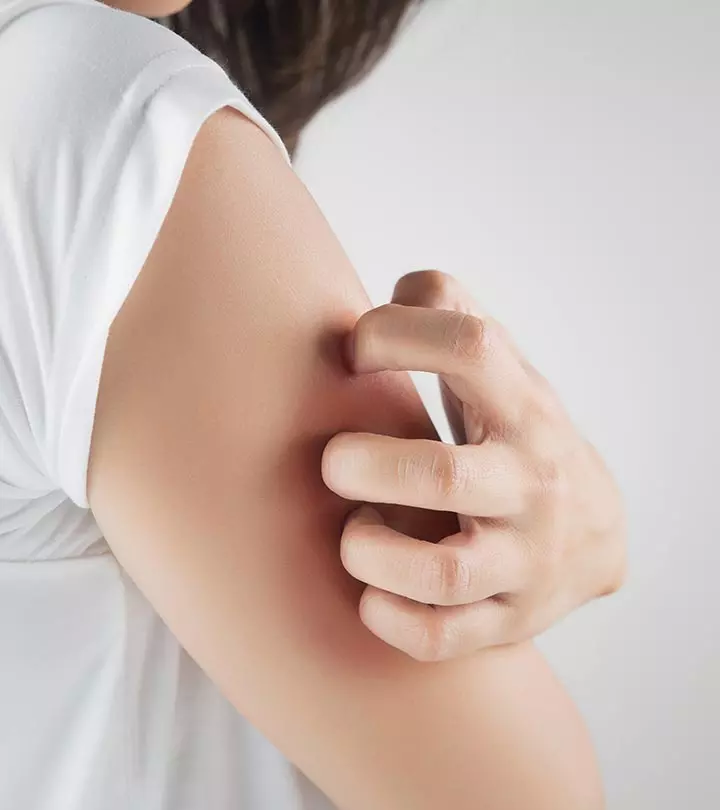
Image: Source: Shutterstock
Keratosis pilaris, or chicken skin, is characterized by multiple bumps that may develop on different parts of the body, most commonly on the arms. It is not easy to get rid of keratosis pilaris as there’s no specific cure for this condition (1). However, specific home and herbal remedies with other treatment methods can help to reduce the severity.
In this article, we dive deeper into chicken skin (which looks like acne but isn’t) and explore a few ways to deal with it effectively.
In This Article
What Is Keratosis Pilaris?
Keratosis pilaris is a common skin condition that occurs when the keratin component of the skin forms hard plugs in your hair follicles.
This chicken skin-like appearance does not lead to any serious health complications, but it can be annoying and can affect your confidence. It is usually seen in people with very dry skin or eczema. Sometimes, especially in the winter months, it can cause itching. However, it is not contagious (2).
Laine, a blogger, recounted her struggle to find relief from keratosis pilaris (KP). She states in her blog, “I had numerous bumps on my arms, all over my legs, my face and neck and it felt like hell. I couldn’t sleep because they’re so itchy. I couldn’t stop myself from scratching my skin and that made everything look even worse (i).” She continues, “I did almost everything, I bought over-the-counter medicine for allergies, anti-itch ointments and creams, you name it. Nothing worked.” This shows her frustration about the lack of a cure for KP and her attempts to alleviate the symptoms with various over-the-counter remedies, ointments, and creams.
According to a report published in StatPearls, keratosis pilaris is a skin condition that mostly affects adolescents, with a prevalence rate of 50% to 80%. The disorder is also seen in adults as it was further estimated that 40% of the adult population is affected by it as well.
Dr. Steven Line, MD, says, “Keratosis pilaris typically does not spread to other areas of the body, but the bumps can appear in multiple locations. It is a chronic condition, meaning it tends to persist over time, but it can improve or worsen, depending on various factors, such as humidity, cold weather, and skin dryness, and it often improves or resolves by the age of 30. It is considered benign and doesn’t cause any harm to the body. It is more of a cosmetic concern for most people.”
 Did You Know?
Did You Know?Key Takeaways
- Keratosis pilaris or chicken skin is a condition marked by rough, bumpy patches on the skin that you can treat at home using simple and all-natural methods.
- You can remove the dead skin cells that cause the rough spots by taking warm baths; showers loosen them.
- The appearance of the skin can be improved by using a loofah or a light exfoliating scrub to remove dead skin cells and unclog pores.
- Consult a physician or dermatologist for additional treatment options if the issue worsens or persists. They might suggest prescription treatments or drugs to help the condition get better.
How To Get Rid Of Keratosis Pilaris?
Although chicken skin or keratosis pilaris cannot be eliminated altogether, you can reduce the severity and make the red marks fade away with the right methods, like gentle exfoliation.
You will need to opt for both internal and external solutions.
- Coconut Oil
- Essential Oils
- Diet
- Cod Liver Oil
- Glycolic Acid
- Apple Cider Vinegar
- Tea Tree Oil
- Aloe Vera
- Argan Oil
- Baking Soda
- Scrub
- Lactic Acid
- Witch Hazel
- Oatmeal Bath
Below listed are the top methods to combat this skin condition:
1. Coconut Oil For Keratosis Pilaris
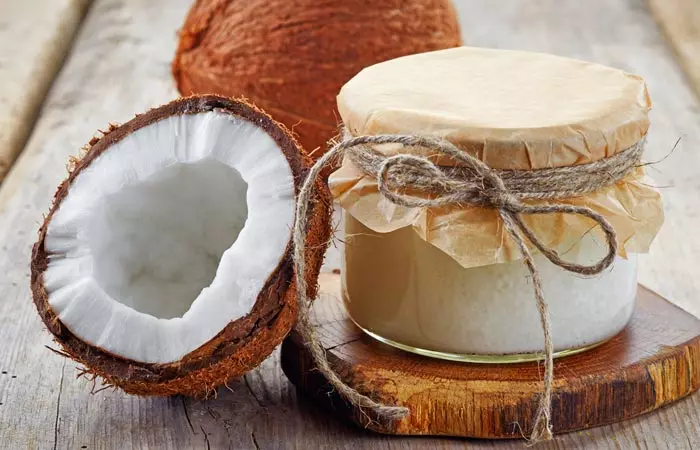
You Will Need
- 2 tablespoons extra virgin coconut oil
- 1 tablespoon brown sugar
What You Have To Do
- Warm the oil slightly and mix the sugar in it.
- Massage this on the affected areas for two to three minutes.
- Rinse with water.
How Often You Need To Do This
Do this every day.
Why This Works
Coconut oil acts as an excellent keratosis pilaris home remedy, and it is good not only for your hair but for your skin as well
(3). Its unique fatty acids soften the skin and provide nourishment from within. The strong antibacterial and anti-inflammatory properties of coconut oil help heal skin inflammation over time (4).
2. Essential Oils For Keratosis Pilaris
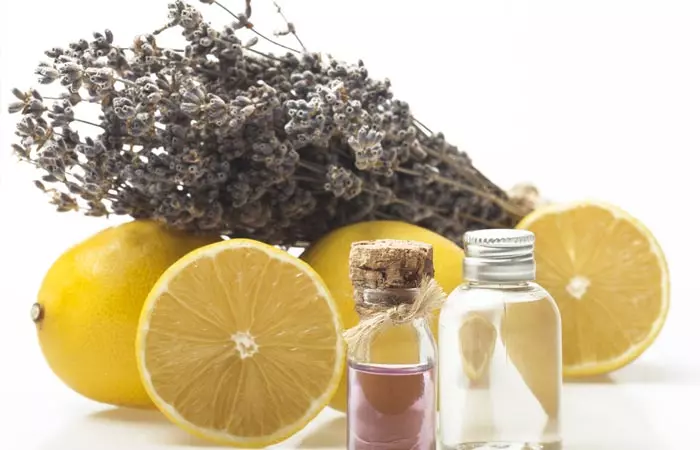
You Will Need
- 2-3 drops lemon essential oil
- 2-3 drops lavender essential oil
- 2 tablespoons olive oil
What You Have To Do
- Mix all the oils and massage on the skin for a few minutes.
- Let it air dry.
How Often You Need To Do This
Repeat this twice a day.
Why This Works
Lemon oil contains antioxidants that will keep your skin healthy
(5). It also has antifungal properties that will keep the skin infection-free (6). Lavender oil aids the lemon oil in keeping the skin healthy with its antibacterial properties (7). It also soothes the skin and the mind (8).
3. Diet To Help Keratosis Pilaris

To combat keratosis pilaris and its symptoms, merely applying products and extracts externally is not enough. You also need to eat the right kind of foods. This will offer your body the required nutrients and antioxidants to battle skin conditions like Keratosis Pilaris better. Include these in your diet to improve skin health:
- Fresh fruits and vegetables are rich in probiotics and minerals, like zinc. Have at least five servings in a day.
- Vitamin A and E-rich foods such as mangoes, pumpkins, tomatoes, green leafy vegetables, etc.
- Foods rich in omega-3 fatty acids fish oil, and lean meat.
4. Cod Liver Oil For Keratosis Pilaris
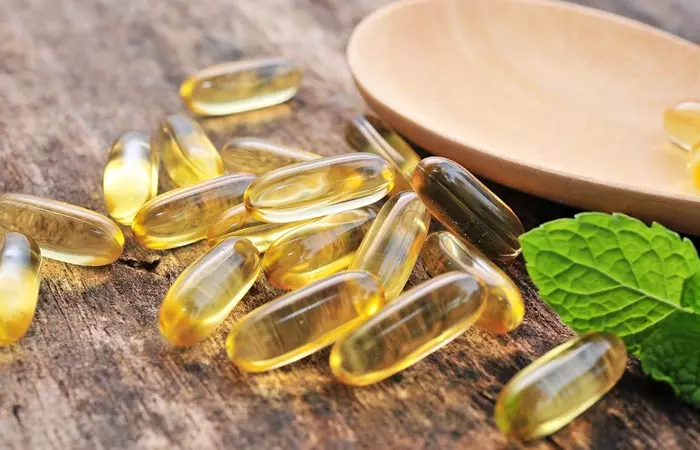
You Will Need
Cod liver oil capsules
What You Have To Do
Take two capsules in a day.
How Often You Need To Do This
Continue taking the liver oil capsules for a few weeks to heal the keratosis pilaris.
Why This Works
Cod liver oil contains omega-3 fatty acids that have anti-inflammatory and healing properties
(9). Cod liver oil supplements are often recommended for a healthy body and skin.
5. Glycolic Acid For Keratosis Pilaris
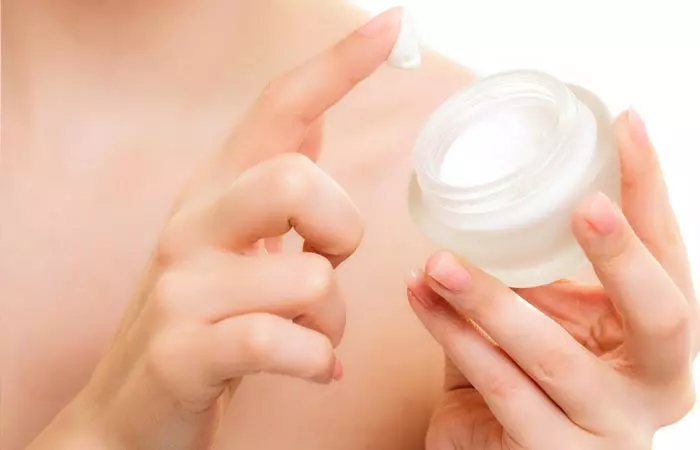
You Will Need
Cream or lotion containing glycolic acid
What You Have To Do
- Apply this on the affected area and massage for a few minutes.
- Rinse with water.
How Often You Need To Do This
Do this twice a day till the keratosis pilaris is gone.
Why This Works
Glycolic acid is a type of alpha hydroxy acid. It has skin exfoliating properties. It will remove the dead skin cell build-up and exfoliate the accumulated keratin (10). It also reduces the skin inflammation (11).
6. Apple Cider Vinegar For Keratosis Pilaris
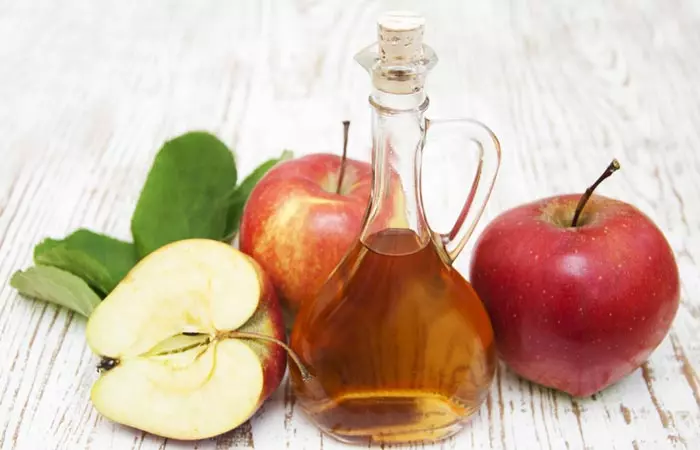
You Will Need
- 1 tablespoon apple cider vinegar
- 1 tablespoon coconut oil
- 1 teaspoon honey
What You Have To Do
- Mix the ingredients well and apply on the affected area.
- Let it dry. Then, rinse with water.
How Often You Need To Do This
Repeat this every day for best results.
Why This Works
ACV, on topical application, acts as a chemical exfoliant. It will remove the dead skin cells and excess keratin that are causing the formation of the bumps on the skin. It also doesn’t allow any infections to develop (12). Coconut oil and honey act as emollientsi Substances that trap moisture in the skin and form a protective barrier to prevent moisture loss. and moisturizers (4, 13).
7. Tea Tree Oil
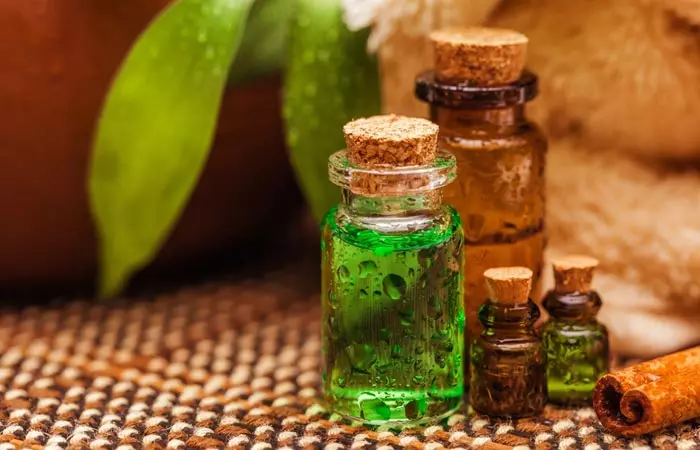
You Will Need
- 2 drops tea tree essential oil
- 10 drops coconut oil
What You Have To Do
- Mix the two oils and massage onto the affected area.
- Leave it on.
How Often You Need To Do This
Repeat this twice a day.
Why This Works
Tea tree oil purifies the skin, making it clear and healthy. Its antimicrobial and anti-inflammatory properties will aid in giving you quick relief from keratosis pilaris, without developing any infections (14).
8. Aloe Vera
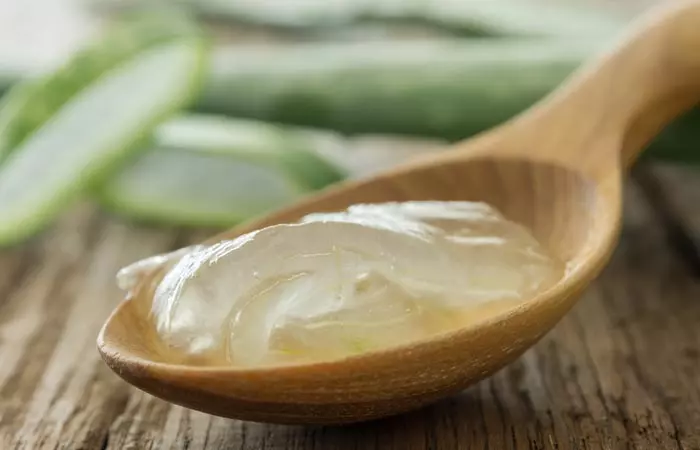
You Will Need
- Fresh aloe vera gel
- Cotton pad
What You Have To Do
- Take out fresh gel from an aloe vera leaf and apply it on the affected area.
- Leave it on for five to 10 minutes. After this, gently massage the gel for a few minutes.
- Wipe off the excess gel using a cotton pad.
You can use organic aloe vera gels available in the market.
How Often You Need To Do This
You can repeat this twice or thrice a day.
Why This Works
Aloe vera gel is not only soothing for the skin, but it also has healing and moisturizing effects. Topical gel application is very beneficial for the skin (15).
9. Argan Oil
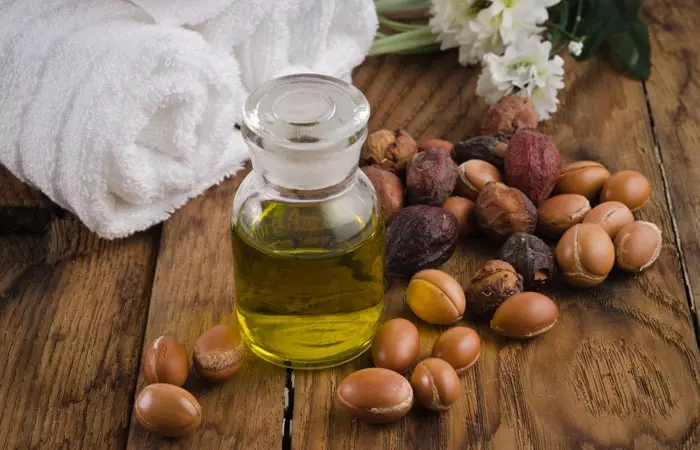
You Will Need
Argan oil
What You Have To Do
Massage the oil on the affected area and leave it on.
How Often You Need To Do This
Repeat this twice a day and you will start seeing results in a few days.
Why This Works
Argan oil is a non-greasy oil that nourishes the skin. It contains vitamin E that helps in maintaining a healthy and blemish-free skin. Argan oil is also effective in healing wounds and scars (16).
10. Baking Soda
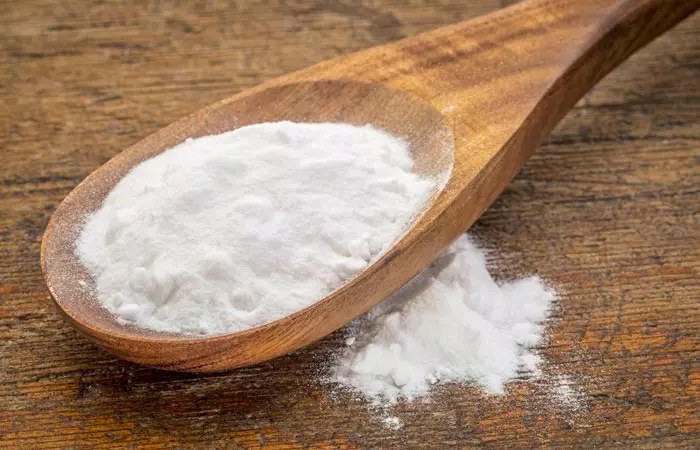
You Will Need
- 2-3 tablespoons baking soda
- Water
What You Have To Do
- Mix enough water with the soda to make a paste of medium consistency.
- Apply this on the affected area and gently massage in circular motions for three to five minutes.
- Rinse with water.
How Often You Need To Do This
Do this every day before taking a shower.
Why This Works
Baking soda removes dead skin cells and improves blood circulation to give the skin a smooth and polished appearance (17). It also reduces the skin inflammation (18).
11. Scrub
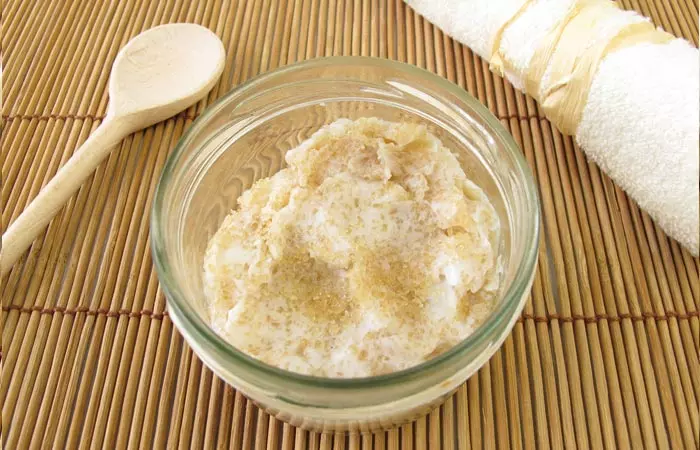
You Will Need
- 1 tablespoon granulated sugar
- 2 tablespoons sour cream
What You Have To Do
- Mix the two ingredients well and apply on the affected area.
- Gently massage in small circular motions for four to five minutes.
- Rinse with water. Pat dry and moisturize well.
How Often You Need To Do This
Use this gentle exfoliating scrub every alternate day.
Why This Works
The lactic acid content of sour cream is an effective solution to remove the bumps of keratosis pilaris (19). The scrubbing motion with sugar will also remove dead skin cells (20).
12. Lactic Acid
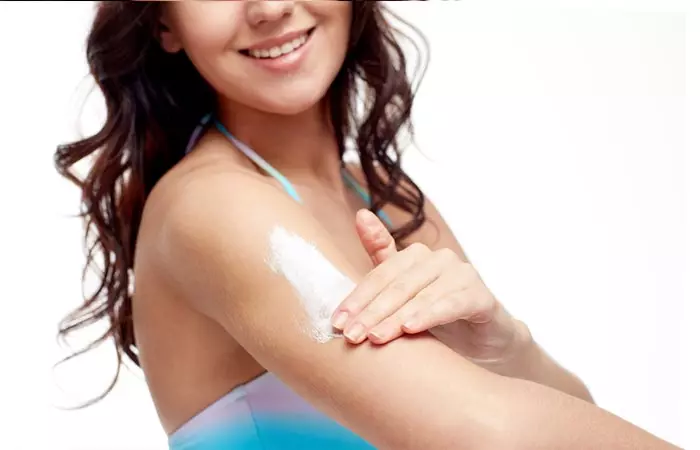
You Will Need
Cream with at least 10% lactic acid
What You Have To Do
Apply this all over the affected area and massage for a minute or two so that it is absorbed easily by the skin.
How Often You Need To Do This
Apply this cream twice a day for best results.
Why This Works
Like glycolic acid, lactic acid is also a type of alpha hydroxy acid. It exfoliates and hydrates the skin, and helps in getting rid of keratosis pilaris (10).
 Quick Tip
Quick Tip13. Witch Hazel
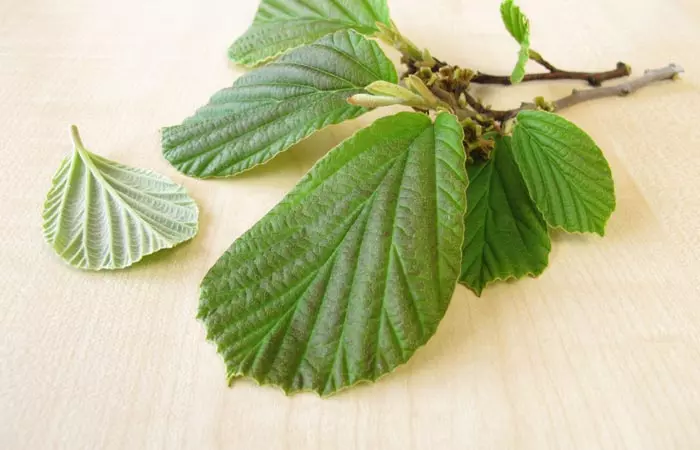
You Will Need
- A few witch hazel leaves
- Water
What You Have To Do
- Crush the leaves and add water to form a paste.
- Spread this evenly on the affected area and let it dry for five to 10 minutes.
- Rinse with water.
Use witch hazel lotion/tincture if you cannot find fresh leaves.
How Often You Need To Do This
Apply this pack every day until the bumps go away.
Why This Works
Witch hazel is a potent herb when it comes to treating skin problems. When the bumps on the skin are due to dry skin or hair removal, witch hazel is an excellent home remedy. It soothes the skin, reduces inflammation and redness, and kills any bacteria that may be present (21).
14. Oatmeal Bath
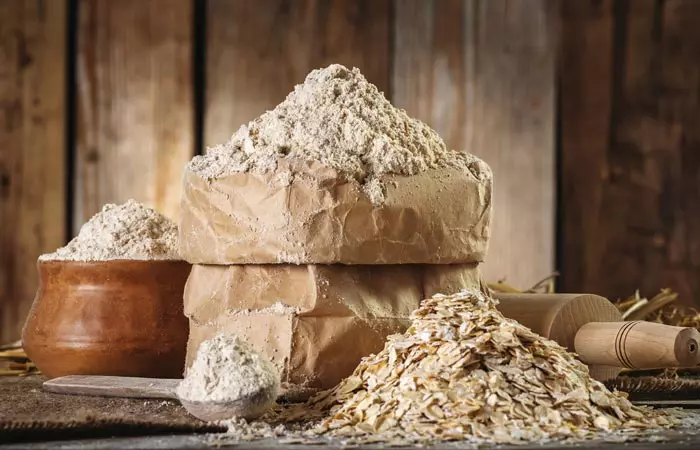
You Will Need
- A handful of oatmeal powder
- Lukewarm water
What You Have To Do
- Fill the bathtub with lukewarm water and add the oatmeal to it.
- Soak your body in that water and remain in the bathtub for 15 minutes.
- Then, take a shower and pat your skin dry. Moisturize well.
How Often You Need To Do This
Do this at least thrice a week to cope with the condition.
Why This Works
To make your skin nourished and reduce the symptoms of keratosis pilaris, take oatmeal baths from time to time. Oatmeal has soothing effects on dry and itchy skin. The saponinsi Chemical compounds found in legume plants that help protect against skin damage due to their antioxidant properties. present in oatmeal cleanse the skin and provide hydration. It also reduces inflammation and moisturizes the skin naturally (22).
Apart from trying these remedies, there are many other ways to improve skin texture, involving at-home remedies and professional treatments. These may help remove dead skin cells and give you a smoother skin.
Keratosis Pilaris Causes
The only cause of keratosis pilaris is the keratin build-up in the hair folliclesi Tube-like structures surrounding the root and the hair strands from where the hair grows out. . Keratin protects the skin from infections and other harmful things. Dry skin and atopic dermatitisi A chronic skin condition characterized by irritation, dryness, inflammation, and red rashes on the skin. can trigger the development of these bumps but they can be managed by making some lifestyle changes (1). According to Dr. Line, “The condition is hereditary and tends to be more common in people with eczema or dry skin.” However, no underlying cause for the body to form these bumps on the skin has been discovered.
Scroll below to learn more about the common symptoms of this condition.
Keratosis Pilaris Symptoms
Keratosis pilaris is characterized by several distinct symptoms. Individuals with this condition often experience small, raised bumps on their skin that can be white, red, or skin-colored. These bumps typically form on the outer arms, thighs, buttocks, and the face (1).
The severity of these symptoms can vary from person to person. While some individuals experience only mild, occasional bumps, others may have more persistent and noticeable concerns. Additionally, keratosis pilaris can also manifest as rough, dry, and itchy skin in the affected areas (1). Although the condition is not usually painful, it can be cosmetically bothersome to some individuals.
Now that you know the causes and symptoms that come with keratosis pilaris and some remedies to help manage the condition, you may feel a bit more confident in handling the issue yourself. However, there are some self-care tips that can help you even more. Keep reading!
Self-Care Tips
Follow these self-care tips along with the above-mentioned home remedies to alleviate keratosis pilaris:
- Exfoliate your skin gently to remove dead cells with a soft brush or loofah.
- Moisturize your skin regularly to keep it hydrated with a gentle lotion or cream.
- Avoid using harsh or fragrant skincare products.
- Limit hot showers and opt for lukewarm water instead.
- Wear loose-fitting clothing with breathable fabrics to prevent irritation.
Infographic: 6 Easy Natural Remedies For Keratosis Pilaris
There are 14 effective remedies for managing keratosis pilaris listed above. You must be wondering which of these you should try first. We have made the choice easy for you. Here are some handpicked recommendations on which of these remedies you should try out first. Check out the below infographic to learn why these remedies work and how you can use them. Illustration: StyleCraze Design Team
Frequently Asked Questions
Is keratosis pilaris a vitamin deficiency?
Keratosis pilaris is a skin condition that may be indicative of an underlying vitamin A or vitamin C deficiency.
What is the fastest way to get rid of keratosis pilaris?
Over-the-counter creams containing lactic acid, urea, and salicylic acid may help accelerate recovery from keratosis pilaris.
Does the sun help treat keratosis pilaris?
Sun exposure may temporarily help treat keratosis pilaris as it has a peeling effect on the skin. However, it does not cure the condition and may darken the bumps on colored skin.
Is vitamin C good for treating keratosis pilaris?
Yes, vitamin C is good for treating keratosis pilaris in case it is caused by a deficiency of this vitamin. In addition, vitamin C boosts collagen production that may help improve this skin condition in some cases.
Is Vaseline good for keratosis pilaris?
Vaseline is an effective moisturizer and may help with keratosis pilaris.
Illustration: Effective Home Remedies For Treating Keratosis Pilaris
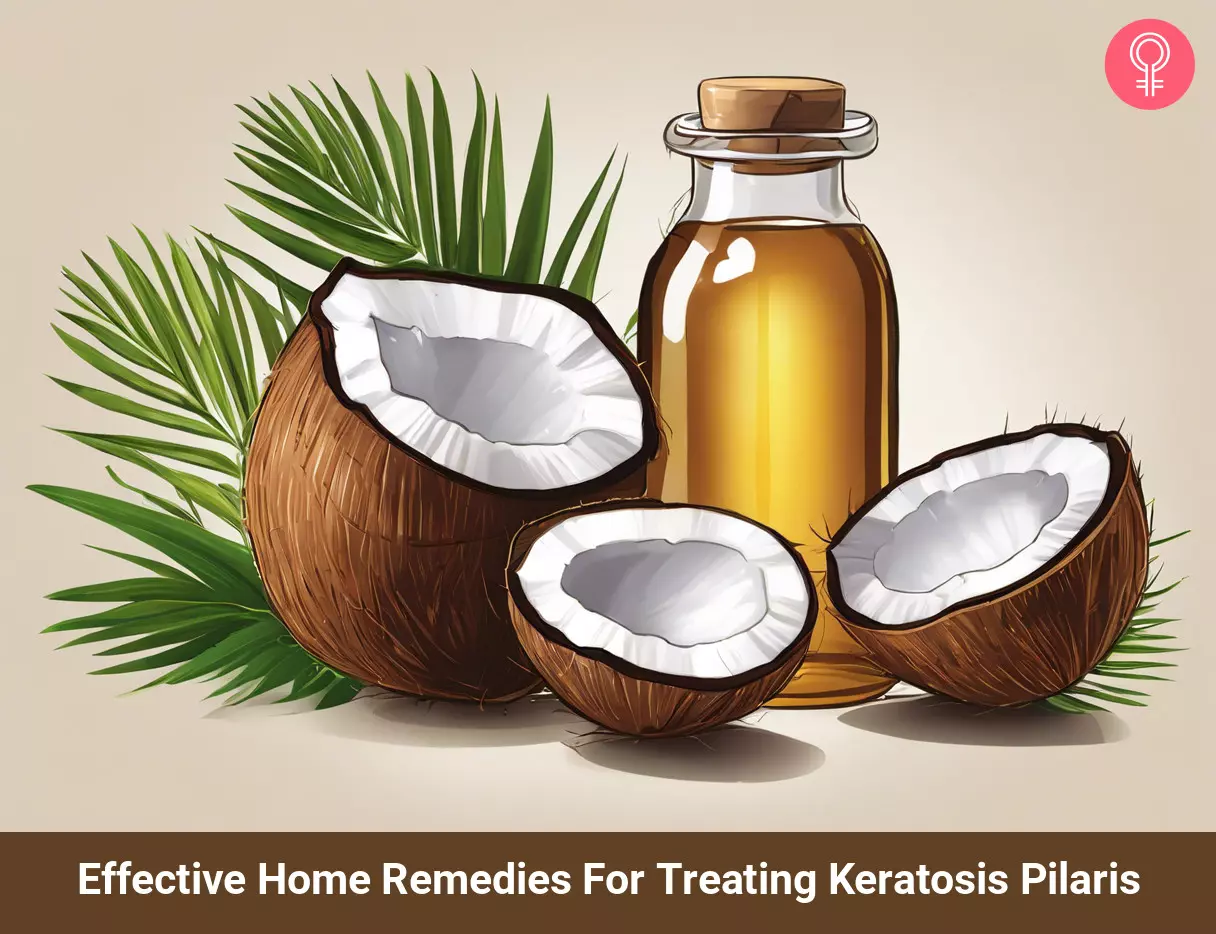
Image: Stable Diffusion/StyleCraze Design Team
Unlock the secrets to combating keratosis pilaris with this enlightening video below showcasing 7 effective home remedies. Check it out now and say goodbye to those pesky bumps and hello to smoother, healthier-looking skin naturally.
Personal Experience: Source
StyleCraze's articles are interwoven with authentic personal narratives that provide depth and resonance to our content. Below are the sources of the personal accounts referenced in this article.
i. How I Healed My Keratosis Pilaris (KP) a.k.a Chicken Skinhttps://lifewithlaine.wordpress.com/2017/11/14/how-i-healed-my-keratosis-pilaris-kp-a-k-a-chicken-skin/
Read full bio of Dr. Priya Gill
Read full bio of Kushneet Kukreja
Read full bio of Ramona Sinha
Read full bio of Swathi E





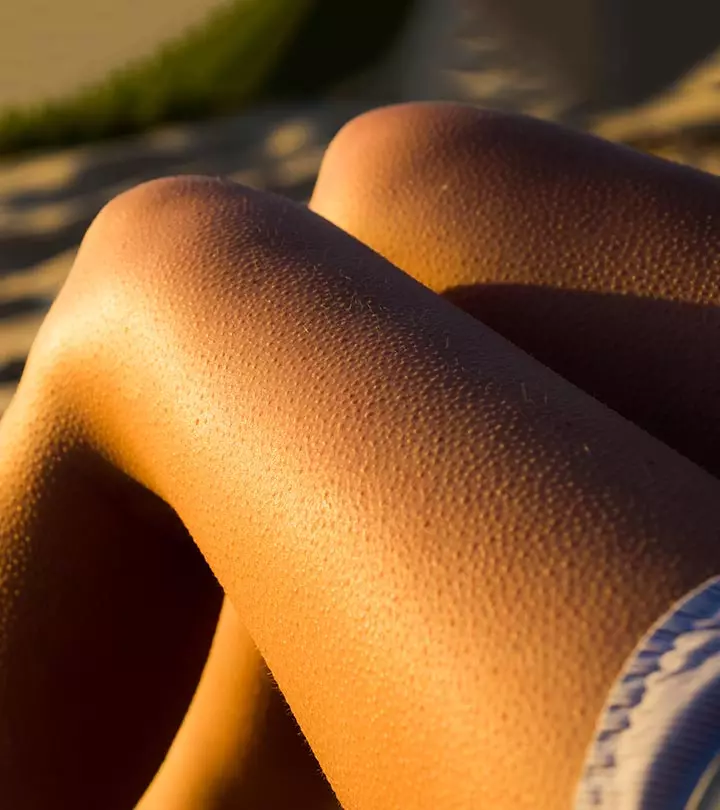
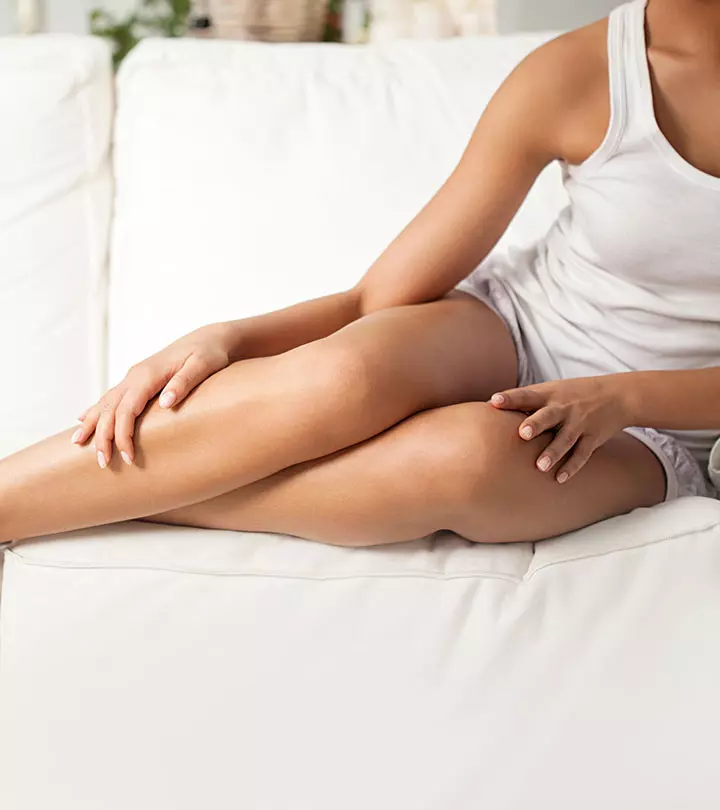
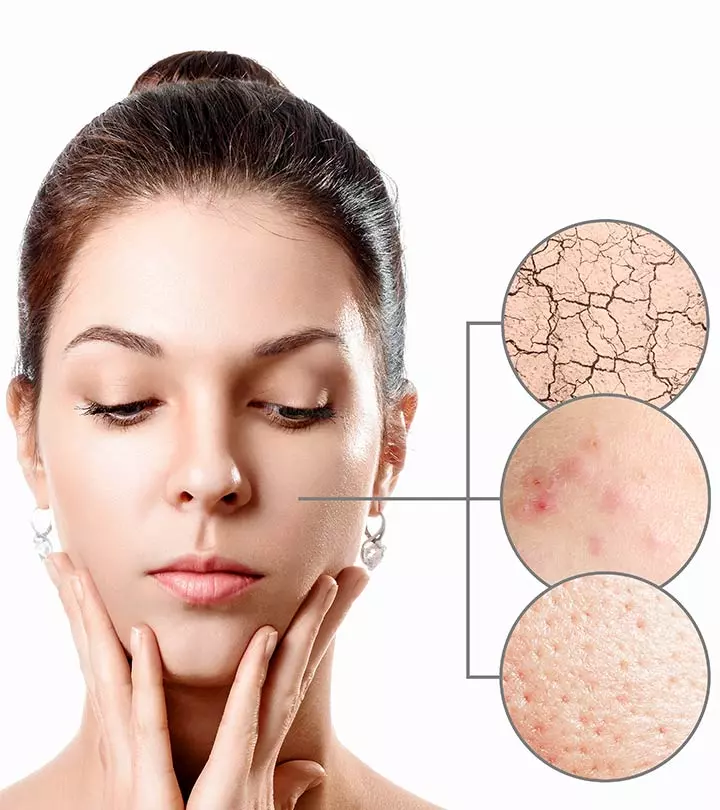
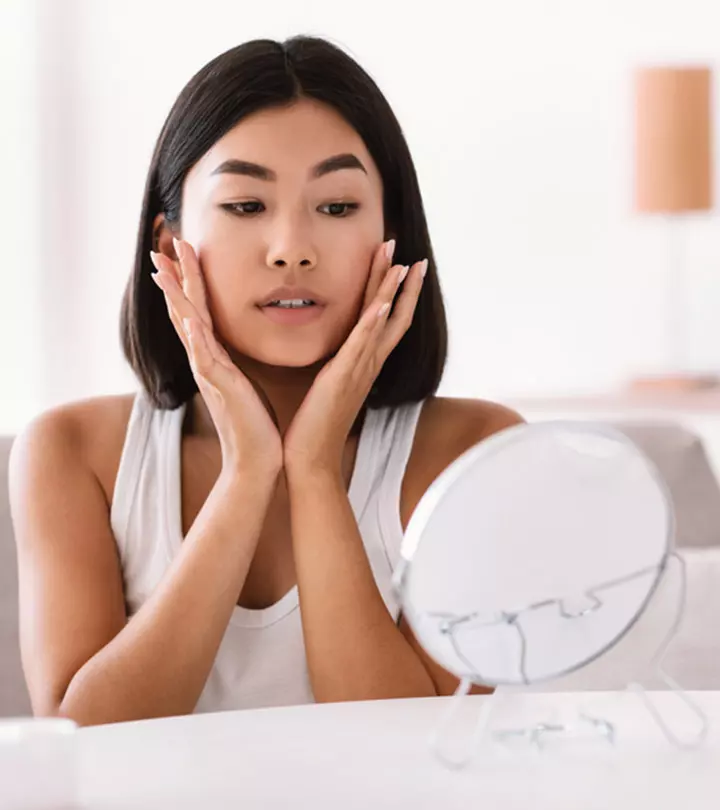
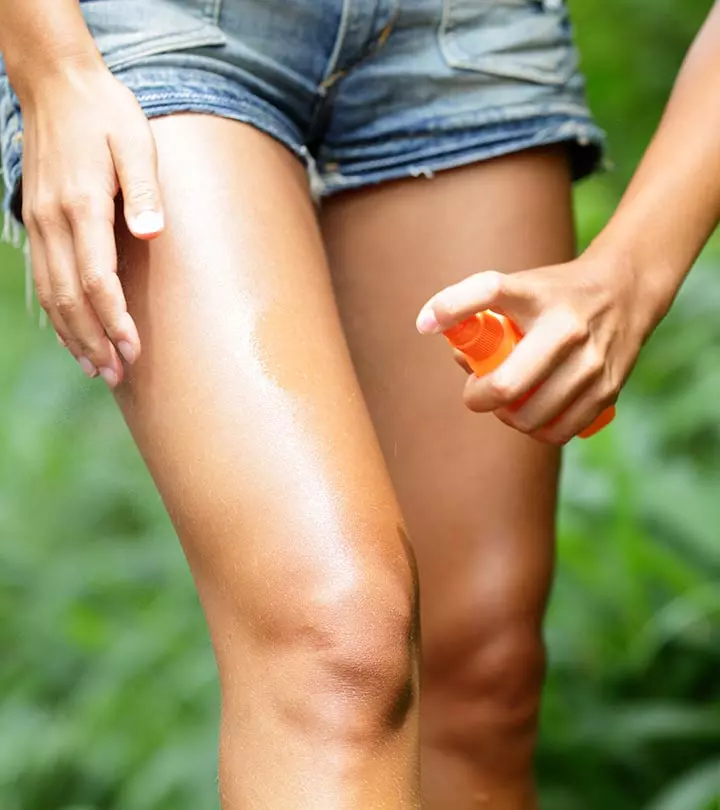



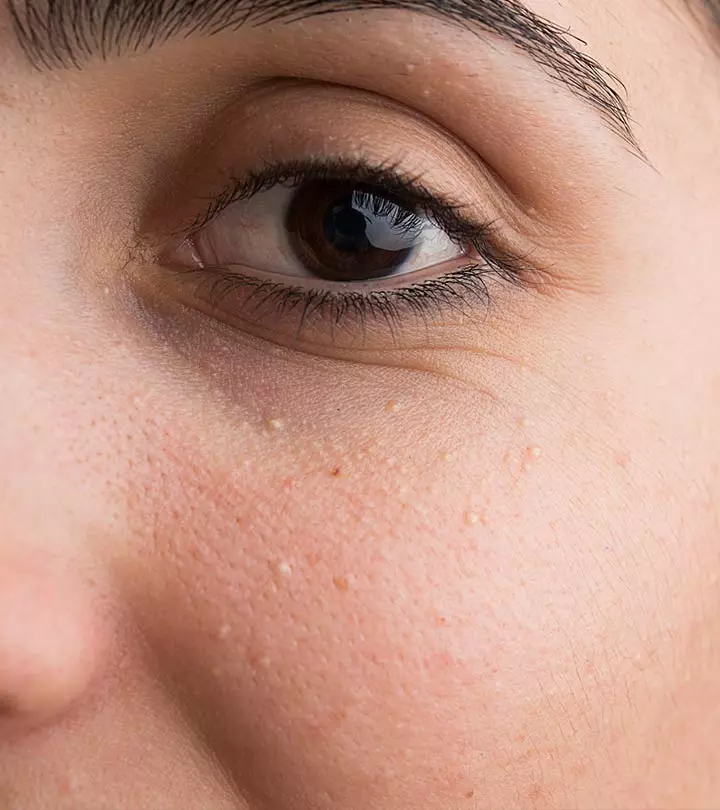
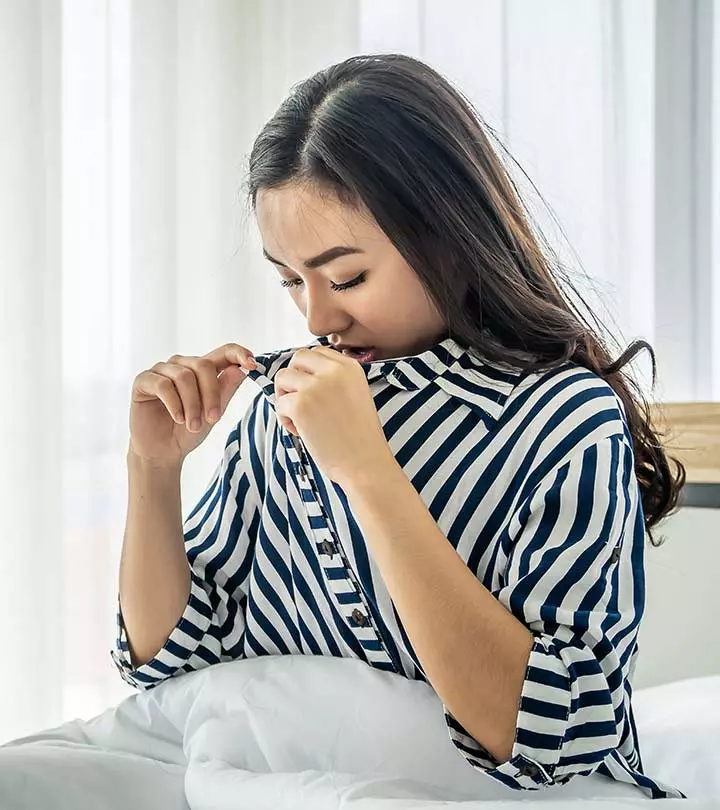



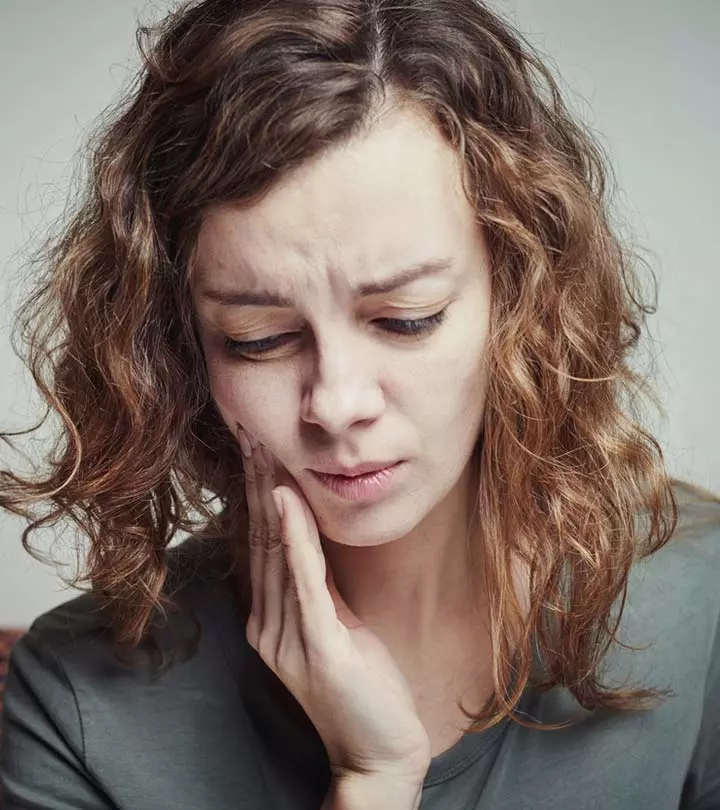

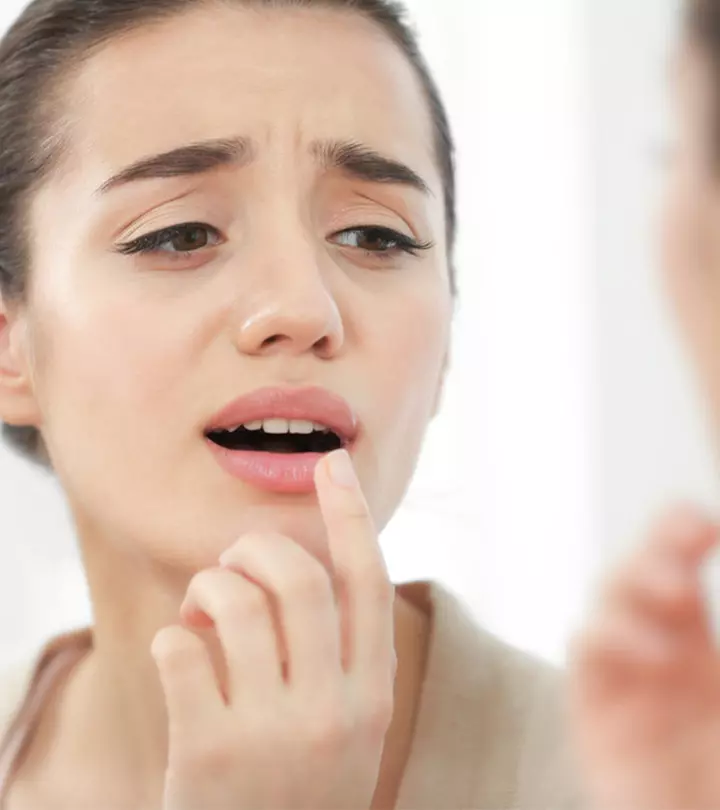
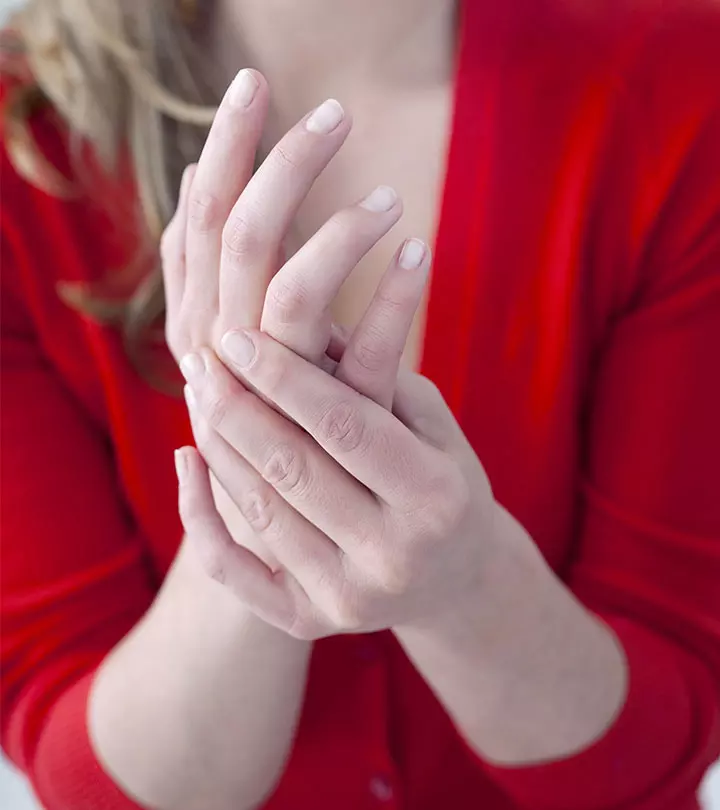
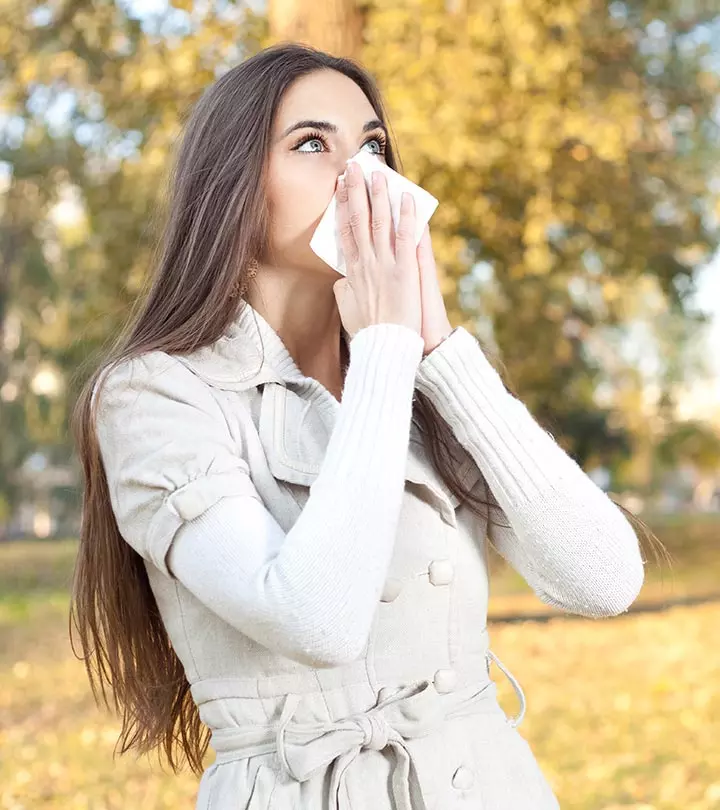
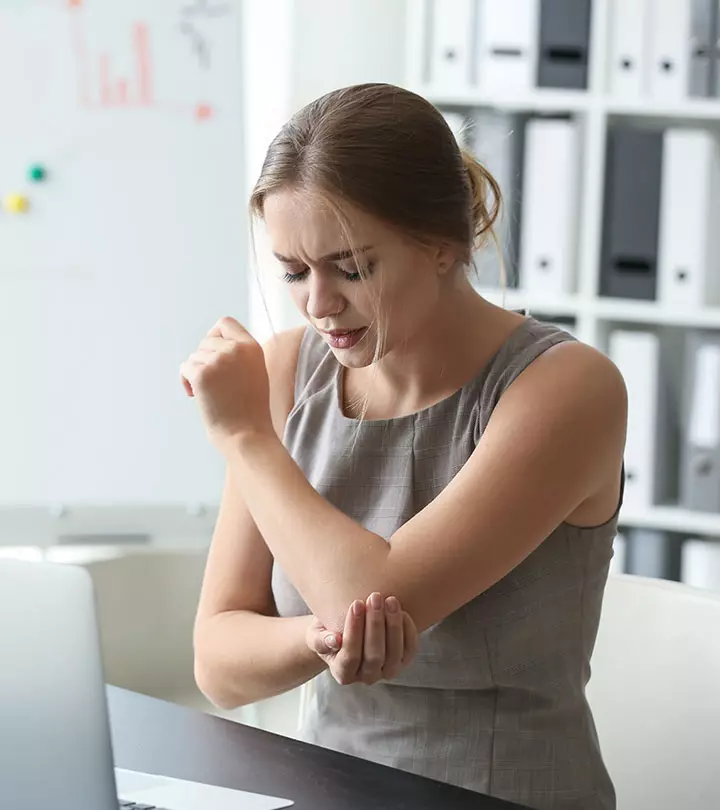

Community Experiences
Join the conversation and become a part of our empowering community! Share your stories, experiences, and insights to connect with other beauty, lifestyle, and health enthusiasts.